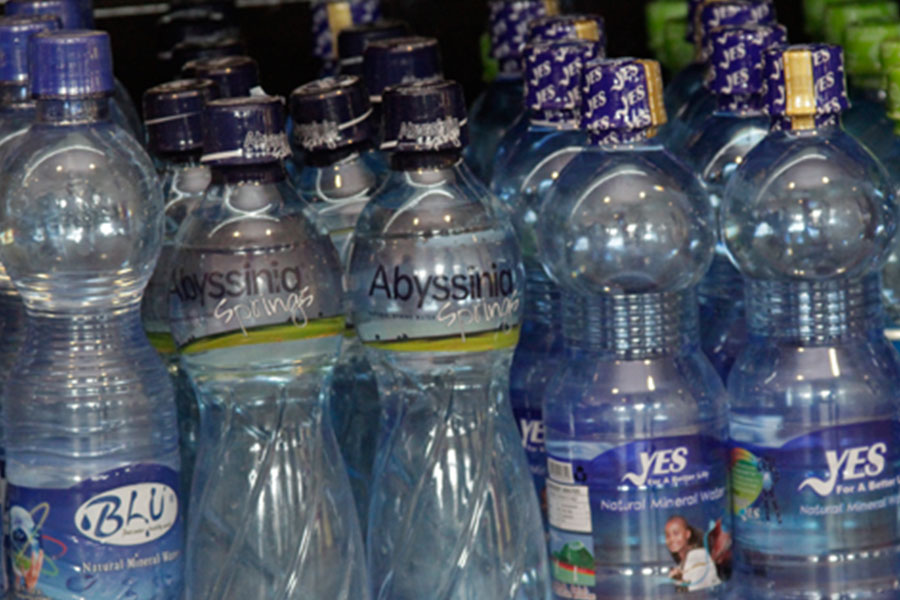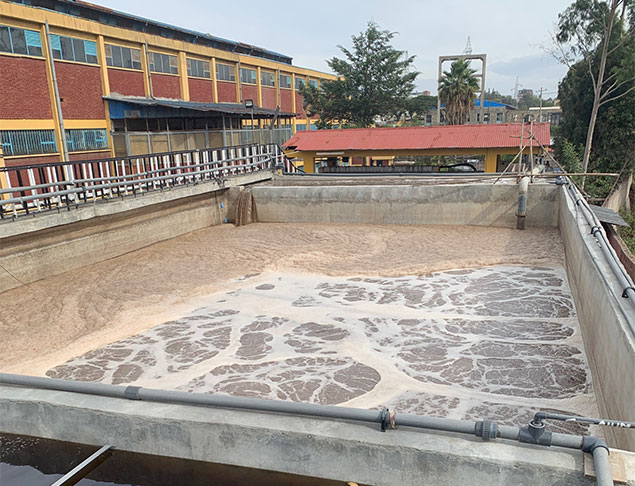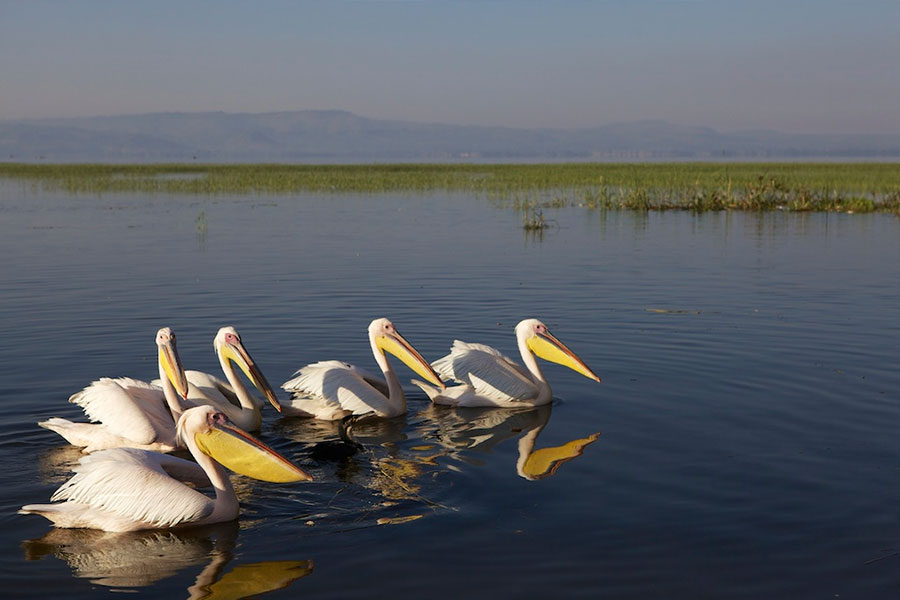
Fortune News | Apr 03,2021
For Hana Tilahun, 28, who lives in Bethel, close to Balcha Aba Nefso Street, water shortages are a common occurrence. But she is anguished that her house did not receive a single drop of water for the past two weeks.
She and her six family members managed to survive the first week using water they had stored in barrels. But as the days went by, things got difficult.
Being a full-time legal clerk and having two nieces in primary school living in the house meant that at the very least, uniforms had to be washed.
“We had to resort to the informal market for cleaning purposes,” Hana says. “We had to incur additional costs on bottled water for cooking and drinking.”
Twenty litres of water for 20 Br was what was available from water vendors. By the time the second week was over, the family had spent 80 Br for water they use for cleaning.
“If things aren't going to change this week, I will have to buy the 50ltr bottled water jar,” said Hana. “I can’t keep buying the smaller ones.”
It is not only her area that is suffering from this problem but much of the city.
“We get water once a week on Tuesdays,” Zelalem Tesfaye, another resident who lives in Gofa Mebrat Haile, said.
He says there was water shortage since they moved into the condominiums nine years ago, but it has only been getting worse. At the beauty salon Zelalem owns, a 7,000ltr water tanker is filled on Tuesdays for clients that could number as many as 30 on weekdays.
“Sometimes we run out of reserves before the water comes again,” he says.
Last week, one of the two major pipes, which is almost half a decade old, that supplies water from Legedadi Dam was leaking and needed major repair. Consequently, most areas in the eastern parts of the city were out of water for three days.
In such cases, he buys water from businesses that sell water from tanker trucks. They charge him 700 Br to have his tank filled.
Asefaw Kebede is one business person that has seen an opportunity in the current water shortage. Four months ago, he fastened a tank to his truck and began to sell water. He has found many clients in CMC, Lam Beret and Goffa areas.
“Business has been good,” he says.
Business has been good for Asefaw, because the city has been unable to meet its demand for clean water, and the city’s government had resorted to rationing water since last year.
Out of the 116 weredasin Addis Abeba, only 25 receive water running throughout the whole week. The rest get water between five days a week and just once a week, depending on the amount of power it takes to pump the water and consumption rates. The latter are located mostly around Gulele and Yeka district.
“Districts in areas with high elevation require the use of a great deal of power to get water to them,” says Zelalem Tesfaye, head of water pipes installation, maintenance circulation and the wastage supervision workforce at the Addis Abeba Water & Sewerage Services Authority.
The Authority, established in 1971, currently has around 550,000 clients in a city of 3.4 million residents, according to the Central Statistical Agency. Addis Abeba is home to a third of the nation’s urban population, which is growing at a rate of 3.8pc annually.
This is despite the fact that the Authority currently supplies 575,000 cubic metres of water, satisfying just two-thirds of the demand. This is in a country where over 71pc of the population has access to water, which according to One Wash National Programme, is defined as being able to find 25ltr of water each day within a kilometre distance and 40ltr of water within a quarter of a kilometre for urban areas.
“It’s not only population growth that is a challenge but also the increase from time to time in the number of construction projects,” says Zelalem.
Currently, the city is getting its water from three dams and around 184 water wells.
Legedadi Dam & Treatment Plant, located on the Aqaqi River east of Addis Abeba, has a capacity of producing 174,000 cubic meters of water a day, while the Gefersa Dam located northwest of the city produces 30,000 cubic meters of water. Dire, an earth fill dam, diverts water to Legedadi Dam.
The remaining water supply of the city comes from well fields, accounting for 65pc.
Although these sources do not supply enough water to the city, the compounding issue has been distribution problems. It is caused by power interruptions, water pipe breakage due to ongoing road construction and the age of existing pipes.
These problems lead to the disruption of the city’s rationing system, denying people like Hana and her family water six days a week. The Authority states that these are problems that also affect the quality of water that is supplied.
Last week, one of the two major pipes, which is almost half a decade old and supplies water from Legedadi Dam was leaking and needed major repair. Consequently, most areas in the eastern parts of the city were out of water for three days.
The authorities are also battling power interruptions.
“The water supply of one district might require five water pumping stations,” says Zelalem. “If electricity is out at one of the stations, the water supply of the consecutive stations is going to be affected too.”
The Authority owns generators to power the pumping stations during blackouts, but these were only meant for emergencies and can only run for eight hours straight.
“The cost of running them is too high,” said Zelalem, adding that the city expended 350,000 Br in diesel fuel in the last fiscal year to run the generators.
The authorities state that they are doing their best to address the myriad challenges facing consistent water provision in the city. Currently, there is an ongoing two billion Birr project to expand the water infrastructure.
The North-South Ayata Fenta water well project, set to be completed next year, will have the capacity of producing 68,000 cubic metres a day, while phase two construction of the Legedadi Water Well Supply Project will generate 86,000 cubic metres of water a day. There is also the Gerbi Water Project, which will generate 73,000 cubic metres a day.
The Authority has also put in place a plan to replace an average of 40Km of pipes annually.
“In addition to increasing water supplies, we are also working on conservation and recycling measures,” says Zelalem. “We plan to compel factories that consume high levels of water to dig their own wells and supply construction companies with recycled water.”
The City Administration has no illusions that the problem will stop, which is why it is for the time being trying to come up with a fairer rationing system. The target is to ensure that every area in the city will get water for at least two days a week.
Addisalem Zelek (PhD), who has experience in water resource management for more than 15 years, believes that the authorities should never forget that water resources will remain limited.
“Water supply should be given attention in urban planning,” he says. “There is no reason a factory that consumes 25,000ltr of water a day should be located in the middle of the city.”
He points out that conservation measures are the most important strategy the city should follow.
Frustration over the city’s water supply, nonetheless, continues.
“You can’t deprive people of their once a week water supply,” said Hana. “Unless the demand is met, it will continuously lead to grievances, complaints and conflicts.”
PUBLISHED ON
Mar 30,2019 [ VOL
19 , NO
987]

Fortune News | Apr 03,2021

Fortune News | Apr 26,2019

Radar | Nov 21,2018

Radar | Jun 08,2019

Fortune News | Jul 19,2025

Dec 22 , 2024 . By TIZITA SHEWAFERAW
Charged with transforming colossal state-owned enterprises into modern and competitiv...

Aug 18 , 2024 . By AKSAH ITALO
Although predictable Yonas Zerihun's job in the ride-hailing service is not immune to...

Jul 28 , 2024 . By TIZITA SHEWAFERAW
Unhabitual, perhaps too many, Samuel Gebreyohannes, 38, used to occasionally enjoy a couple of beers at breakfast. However, he recently swit...

Jul 13 , 2024 . By AKSAH ITALO
Investors who rely on tractors, trucks, and field vehicles for commuting, transporting commodities, and f...

Oct 11 , 2025
Ladislas Farago, a roving Associated Press (AP) correspondent, arrived in Ethiopia in...

Oct 4 , 2025
Eyob Tekalegn (PhD) had been in the Governor's chair for only weeks when, on Septembe...

Sep 27 , 2025
Four years into an experiment with “shock therapy” in education, the national moo...

Sep 20 , 2025
Getachew Reda's return to the national stage was always going to stir attention. Once...